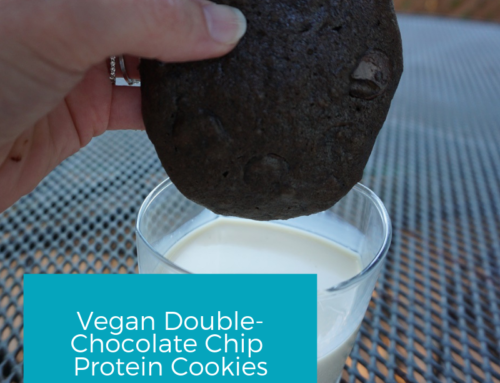On the short drive to my in-laws there is a small bakery. And this time they had a sign out for German donuts. I asked Thomas what those tasted like, which resulted in him turning into the parking lot for us to try them. A few minutes later, we arrived at my in-laws with a bag of apple fritters and German donuts, something that took my in-laws by surprise. They weren’t used to us arriving with food, especially not fried dough. I am proud to say that I have developed a much healthier relationship with food. A relationship that includes enjoying donuts on occasion. Here are 13 signs of a healthy relationship with food.
Good and Bad Food
We live in a society that equates food to being bad or good. Over and over we onnect our self-worth to our food choices and body size. We are constantly bombarded with advertisements for fast food, 52-oz sodas for $1.50, and aisles of processed foods at the grocery store. But then on the flip side we’re told in order to be successful you have to be a certain size, avoid eating “bad foods”, or exercise and eat in a way that feels torturous. Too frequently the words “I’m being so bad, I shouldn’t eat this” are said. Or too many times our brain obsesses for hours after eating something. Not anymore. Which brings me to what I think a positive, healthy relationship with food looks like.
13 Signs of a Healthy Relationship with Food
This list is not exclusive and individuals with allergies will have to demonstrate different behaviors towards food. But it’s a start.
1. Eating the foods on your plate is enjoyable.
Your plate is full of flavors and textures that you enjoy and you don’t feel obligated to eat foods that you do not enjoy. What foods do you not enjoy eating that you eat because they are labeled as health food?
2. You don’t let diets and diet choices define who you are.
You’re more than “a vegan” or a “low-carb dieter”. There’s nothing wrong with choosing to eat certain foods but letting the diet define who you are can feel confusing at times. Associating who you are with how you eat can increase the guilt when those food choices are not available.
3. Food and diet choices don’t improve or decrease your self-worth.
Straying from your typical food choices doesn’t make you feel less about yourself or result in days of restriction.
4. Food choices takes some planning but it does not consume an abnormal amount of time or majority of your thoughts.
Your thoughts aren’t preoccupied with food if meal planning doesn’t happen.
5. A specific time on the clock does not dictate when you eat everyday.
Eating meals and snacks at different times than your normal times doesn’t give you anxiety or make you feel out of control. If you go to an early-dinner or a late-lunch, your thoughts are not consumed with the change.
6. You feel at-ease or can enjoy your time when someone else is in control of the food.
A party, a luncheon, restaurant meal, or going to friend’s house for dinner does not give you anxiety over the food choices.
7. Your internal cues of hunger and fullness prompt you to sit down and eat and tell you when you are done eating.
You feel connected and mindful to how your body feels when it is hungry and when it is full. This one can be challenging and take some time to develop if you have been following diets for many years. But I feel it is one of the most rewarding aspects of having a healthy relationship with food.
8. Overeating doesn’t trigger negative behaviors or thoughts.
There are times when we eat more than our body needs nutritionally. And that is OK.
9. Eating foods that are nutritious is important to you because of the health benefits they provide and the energy it gives you.
You view eating nutritiously as a way of self-care and maintaining a healthy and happy quality of life.
10. You try new foods and experiment with flavors, textures, and foods of different cultures.
Trying new foods can help you enjoy food more. It also provides you with a variety of nutrients.
11. Food is viewed as fuel and nutrients for your body. And your body feels energetic after most meals.
“Most” is in italics because a healthy relationship with food includes all foods. Most of the time our body is looking for energy so we want to focus on the foods that are the best sources of energy.
12. Your diet and food behaviors are not constantly changing.
Research demonstrates that those who are constantly trying new diets actually have a harder time managing their weight.
13. Occasionally you take time to enjoy the foods that bring you pleasure, regardless of nutritional value.
When you enjoy certain foods, make sure you eat them!
What would you add?
There’s a lot of emotion that goes into eating and our food choices. I think having a healthy relationship with food doesn’t ignore this fact but it allows you to recognize your feelings, emotions, and thoughts that are associated with food. Working towards a healthy relationship can take time, patience, and grace.
[Tweet “13 signs you have a healthy and happy relationship with food. What would you add? “]








I love food. I love eating. I love how food energizes me. Some think my diet sucks because I can’t eat so many things, but I don’t see this as a burdon at all, I see it as just a fun challenge every day that’s really just turned into a game!
Gigi – That’s amazing that your dietary barriers have not triggered a negative relationship with food! I love following how you make food challenges into games.
I would amend 6 and 10 for those with food allergies only because those can actually kill people and it’s normal to have a bit of anxiety about food when someone else is in charge of the menu. And 10 because food allergies sometimes you actually can’t try new food because of said allergies.
And all of these can also be affected by mental illness as well so someone with anxiety/ocd/autism(which autism isn’t a mental illness it’s a different way of brain working but including because it can have same detrimental mental and physical effects) may need to have all meals planned out or at same time or not try new foods or be in control of food for whatever reason that others don’t understand and they may not be able to explain.
I’m not trying to say the article is bad, it’s actually pretty good. But for those like me and the person I am a caregiver for some of these wouldn’t be a healthy or happy relationship with food. But in our own ways we do have our own healthy and happy relationships with food. Everyone’s dietary and nutritional needs are different and we all need to get out of the mindset of good food vs bad food.
Thank you Blow Pop for your comments. I completely agree with you that allergies can impact food decisions and feelings towards food and individuals with food allergies have specific challenges that can be very difficult. I also like that you said everyone’s dietary and nutritional needs are different. As I completely agree and this list is no way meant to be an all inclusive list. My goal is to help encourage people to find a healthy and happy relationship with food, whatever and however that looks like for them.
This is a great list! As someone who never had a bad relationship with food for over 20 years, I am learning to have a better relationship. It has not been a fun or easy process, but I am SO thankful for the freedom I have gained and I look forward to more freedom!
Esther, I am happy you found this list helpful and thank you for sharing your experience. I loved how you said your journey has been freeing! What a great feeling.